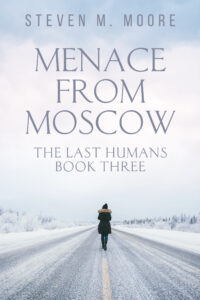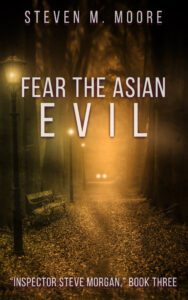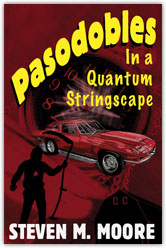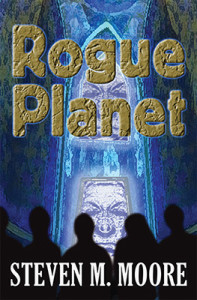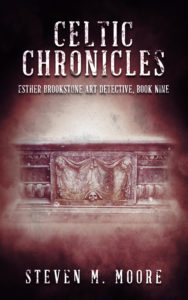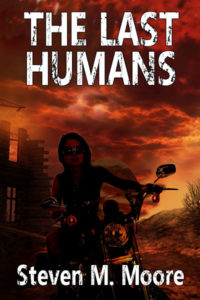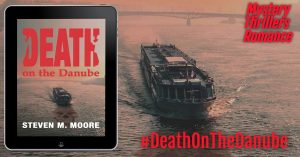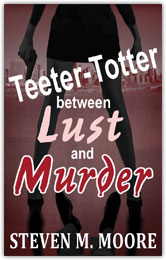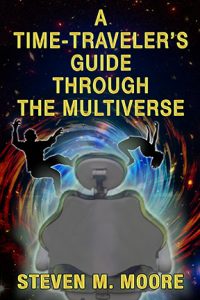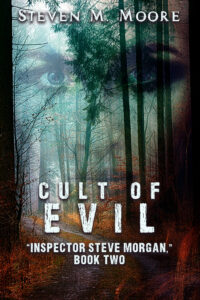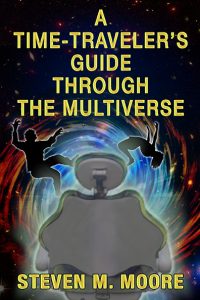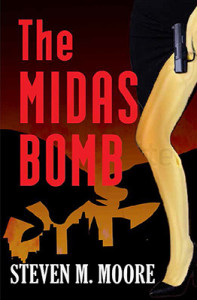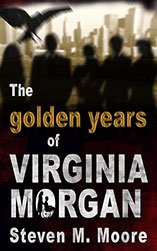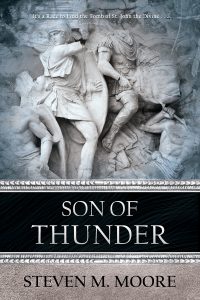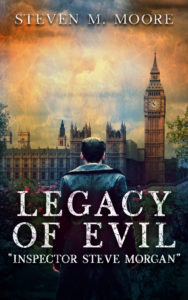Trees lost in the forest…
Wednesday, May 15th, 2024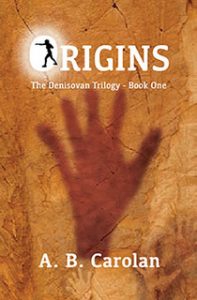 A.B. Carolan’s having problems finishing “The Denisovan Trilogy” (some of his woes are discussed in Intolerance, a novel that’s a free PDF download found at this website). You’ll only find the first novel Origins for sale. It’s complete as far as it goes, but he’d be the first one to say there are a lot of planets and lightyears to go in order to finish the trilogy. His problem isn’t writer’s block per se; it’s what many authors experience: Losing track of the trees in a very big forest.
A.B. Carolan’s having problems finishing “The Denisovan Trilogy” (some of his woes are discussed in Intolerance, a novel that’s a free PDF download found at this website). You’ll only find the first novel Origins for sale. It’s complete as far as it goes, but he’d be the first one to say there are a lot of planets and lightyears to go in order to finish the trilogy. His problem isn’t writer’s block per se; it’s what many authors experience: Losing track of the trees in a very big forest.
Let me explain, starting with an admission: Evidence of this problem is found in one of my very first novels, the sci-fi saga Survivors of the Chaos. (Originally published by the now defunct POD Infinity Publishing, a second edition is available as the first novel in the ebook bundle of another trilogy, “The Chaos Chronicles Trilogy Collection.”) It’s not a major flaw; it’s the nature of the beast, the key word being “saga.”
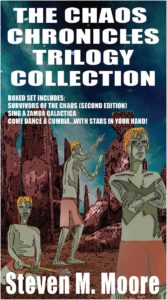 You see, Survivors, or even that trilogy as a whole, is a grand saga covering thousands of years of human civilization, and that’s the forest. The trees are represented by the individual human (and later ET) heroes (and villains!) who move that saga forward. As I wrote, I had to focus on those individual trees, the keyword being “focus.” A historian can perhaps focus on an entire nation or civilization, but sci-fi readers need specific individuals they can relate to; and those who make a difference, i.e., make change occur, are the ones authors must write about. It’s true that World War II was Churchill, FDR, Hitler, Stalin, and the Japanese generals, but the true stories told in history books and historical fiction novels come down to individuals. In other words, that list of the famous and infamous in that war for many can be less interesting than the story of just one soldier slogging it out as the Allies move toward Berlin.
You see, Survivors, or even that trilogy as a whole, is a grand saga covering thousands of years of human civilization, and that’s the forest. The trees are represented by the individual human (and later ET) heroes (and villains!) who move that saga forward. As I wrote, I had to focus on those individual trees, the keyword being “focus.” A historian can perhaps focus on an entire nation or civilization, but sci-fi readers need specific individuals they can relate to; and those who make a difference, i.e., make change occur, are the ones authors must write about. It’s true that World War II was Churchill, FDR, Hitler, Stalin, and the Japanese generals, but the true stories told in history books and historical fiction novels come down to individuals. In other words, that list of the famous and infamous in that war for many can be less interesting than the story of just one soldier slogging it out as the Allies move toward Berlin.
Survivors has another feature that some might see as a flaw: It and its sequels, Sing a Zamba Galactica and Come Dance a Cumbia…with Stars in Your Hand!, used to be one huge novel. Consequently, you will find Jenny Wong’s story unfinished in that first novel and continued into the second (and third and beyond!); it’s definitely a cliff-hangar in Survivors. This isn’t the major flaw that it could be, because a reader who only peruses that first novel probably doesn’t realize she’s even still alive, so they’d be surprised when she returns in Zamba.
With all these problems, it was a wonder that Survivors got any positive reviews! Instead, I got my most cherished review (because it motivated me to ignore what an ignorant said as she complained about too much narrative, indicating no understanding of sci-fi writing where world-building is always required) from a Pulitzer-nominated author no less! In a nutshell, he liked that saga aspect. (Maybe he was a reader who just thought Jenny had died?)
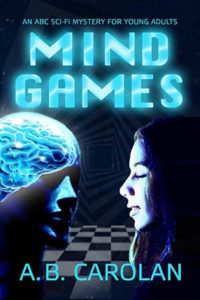 I think Carolan’s problems with finishing “The Denisovan Trilogy” are similar to those I had with “The Chaos Chronicles Trilogy.” He shouldn’t complain too much [wink, wink], though, because one strong character, Kayla Jones, will be the strong tree standing tall in all three novels no matter how big the forest becomes. She’s “the One” for the trilogy as well as for the Denisovans’ descendants, the shaman who will change human history. (You can write Carolan and tell him to get going using the contact page at this website. I think Google has cancelled his Gmail account. We just text now! But I can pass on any message you have for him.)
I think Carolan’s problems with finishing “The Denisovan Trilogy” are similar to those I had with “The Chaos Chronicles Trilogy.” He shouldn’t complain too much [wink, wink], though, because one strong character, Kayla Jones, will be the strong tree standing tall in all three novels no matter how big the forest becomes. She’s “the One” for the trilogy as well as for the Denisovans’ descendants, the shaman who will change human history. (You can write Carolan and tell him to get going using the contact page at this website. I think Google has cancelled his Gmail account. We just text now! But I can pass on any message you have for him.)
***
Comments are always welcome. (Please follow the rules on the “Join the Conversation” web page.)
Origins. Even this single novel shows A.B. Carolan can write action-packed sci-fi. (Of course, some readers saw that in Mind Games, another Carolan novel.) Origins is another sci-fi mystery written for young adults but many adults who are young-at-heart have enjoyed it. If you’ve read anything about the Denisovans (a real but more mysterious hominid line like the Neanderthals), you’ll enjoy this story about their descendants on Earth and those among the stars.
Around the world and to the stars! In libris libertas!
